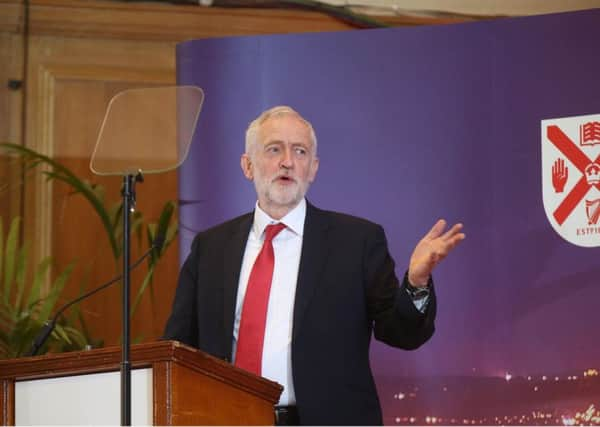Sam McBride: Debate over British-Irish Intergovernmental Conference has become totemistic


Once, the answer to that question was simple: Direct rule from Westminster .
That is what happened when the first power-sharing experiment, the Sunningdale Agreement, collapsed in 1974 and it is what happened on four occasions when Stormont did or was collapsed - or was going to collapse - after 1998.
Advertisement
Hide AdAdvertisement
Hide AdWhen Stormont fell last year, the widespread expectation was that if the DUP and Sinn Féin could not agree to re-enter government within a few weeks then direct rule would rapidly follow.
But almost 500 days after Sinn Féin walked out of power-sharing there has been neither a return to devolution nor British ministers taking charge of Stormont departments, leaving civil servants to operate in an unprecedented fog of uncertainty.
The delay in implementing direct rule appears to be down to both a reluctance on the part of the government to take responsibility for problems in areas such as health and education, as well as a concern that such a move would further inflame nationalist opinion which is already increasingly frustrated by Brexit, what they perceive to be the hardline stance of Arlene Foster and the DUP’s position of power in propping up Theresa May.
But whatever the reasons for the policy of inaction, one consequence has been to make what once was seen as inevitable become far more significant and politically sensitive if it eventually arrives. In that vacuum, the only proposed alternative to direct rule is for a meeting of the British-Irish Intergovernmental Conference (BIIC) - a body so obscure that almost no one seems to have noticed until recently that it hadn’t met for more than a decade.
Advertisement
Hide AdAdvertisement
Hide AdAs with the debate about an Irish language act, the question has become almost totemistic, with arguments focusing on whether it happens, not on what it will do.
Under the Belfast Agreement, the BIIC can only discuss non-devolved matters so could not itself fill the Stormont vacuum.
Despite that, six months ago Leo Varadkar set out an expansionist vision of the body, saying that “if nothing’s devolved then everything is devolved to the British-Irish Intergovernmental Conference” before later rowing back and accepting that devolved matters were excluded.
Last week Sinn Féin’s chairman set out a vision of the body which would also be impossible without altering the Agreement. Declan Kearney presented the BIIC as something which could see Dublin provide “appropriate political direction and governance” and “governmental oversight” in the absence of Stormont - de facto joint rule of by London and Dublin.
Advertisement
Hide AdAdvertisement
Hide AdDespite his long-standing links to Sinn Féin, Jeremy Corbyn told this newspaper on Thursday that while he supports the BIIC meeting it was constitutionally impossible for it to consider devolved matters.
In response, the DUP has veered between Sir Jeffrey Donaldson’s seemingly relaxed dismissal of the BIIC as a “talking shop” and Ian Paisley Jr’s inaccurate claim that for the body to meet “would be outside of the Belfast Agreement”.
Given that one of the reasons why the BIIC hasn’t met since 2007 is that the British and Irish governments are in constant contact due to what until recently have been excellent Anglo-Irish relations, one view is that a meeting of the BIIC would be meaningless – any one of the regular meetings between Karen Bradley and Simon Coveney could be renamed as a meeting of the BIIC.
Some unionists fear that even if it was to be initially merely a rebranding of what has been going on for decades, it could become a lever to a much greater role for Dublin.
Advertisement
Hide AdAdvertisement
Hide AdIf Stormont does not return for years, a meeting of the BIIC is probably inevitable – even if it is only to assuage nationalist opinion.
It may be that such a meeting is being delayed as a tactical measure to be announced alongside a return to direct rule - in effect giving unionism and nationalism half of what they want. If that is the case, Sinn Féin may regret making its demand for something which cannot exercise executive power.